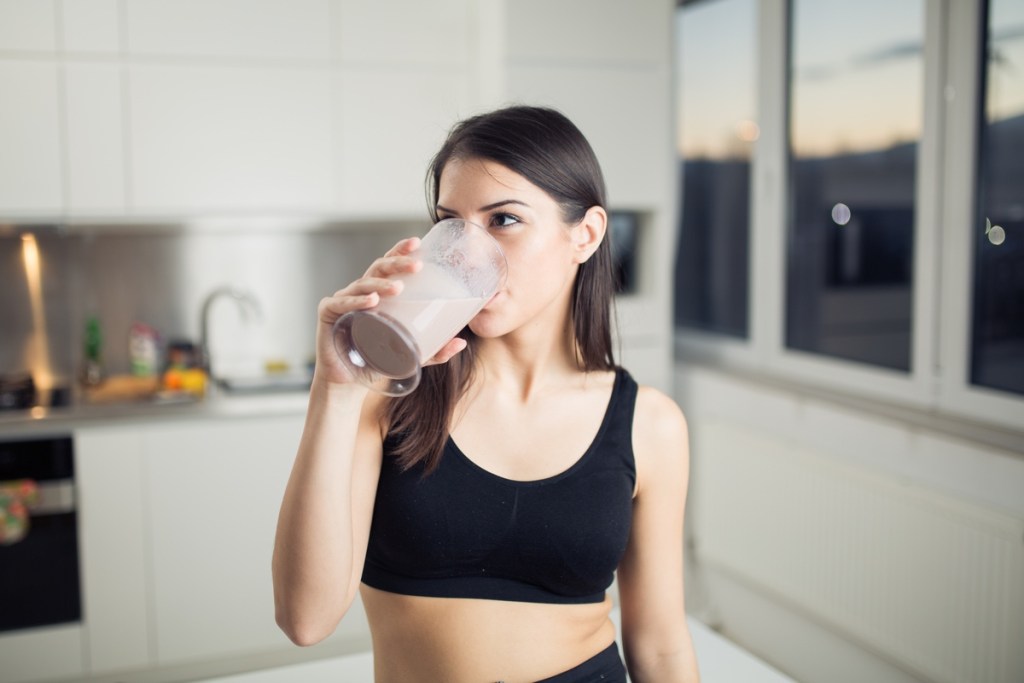
Pre-workouts are touted for their ability to improve your performance and energy levels while you exercise. They come in a lot of forms, all generally referred to simply as “pre-workouts,” but one of the most popular is drinks, either premade or in powder form.
Although formulations can vary and some of the ingredients can seem a little unfamiliar, they are all designed with one stated goal in mind: helping you get the most out of your workout.
But do they actually work? And what about those ingredient lists? Do they do what they say they’re going to do, or is this all just marketing hocus-pocus?
It is essentially impossible to generalize because there are so many out there, but here are a few basic tenets you need to know about pre-workout drinks. With this information, you’ll be in a much better position to know what you’re putting in your body before you go crush that workout.
There’s a lot of caffeine in them
And when we say a lot, we mean a lot. Generally speaking, pre-workout drinks contain an average of 200-300 milligrams per serving. For comparison’s sake, one eight-ounce cup of coffee contains about 100 milligrams.
This high caffeine content isn’t necessarily a bad thing. Although too much caffeine makes some people jittery, it is generally considered very safe. But it’s still worth noting the massive amounts that are contained in pre-workouts. To put it bluntly, if pre-workouts make you feel energetic, it’s probably the caffeine talking.
That’s not to say it doesn’t have workout benefits — quite the opposite. According to 2021 analysis appearing in the Journal of the International Society of Sports Nutrition, the benefits of caffeine use include better performance in “muscular endurance, movement velocity and muscular strength, sprinting, jumping, and throwing performance, as well as a wide range of aerobic and anaerobic sport-specific actions.”
For those with caffeine sensitivity, it might be worth paying particularly close attention to your pre-workout ingredients and consumption. And for others, it’s good to know the basic (and rather unglamorous) building block on which pre-workouts are founded.

They aren’t regulated by the government
The U.S. Food and Drug Administration (FDA) is the government agency responsible for evaluating and approving all the drugs sold in America. The intent is to ensure that the drugs are safe and that they do what their makers claim they can do.
But nutritional supplements, including pre-workout drinks, are not considered drugs, meaning supplement companies aren’t subject to the same level of oversight. Unless there is a specific reason, like a major safety breach or health issue, to pull a supplement off the shelves, the FDA typically doesn’t get involved. This lack of oversight also means that manufacturers can make claims about their product’s effectiveness that haven’t been confirmed by the FDA, whose one and only job is to protect American consumers (not sell them things)
So what does this mean for you? In short: buyer beware. Unfortunately, there is no guarantee that supplement makers are properly making or labeling their products. And while most supplement makers prioritize quality and customer satisfaction, there are always bad actors in any space. Be sure you trust the source of your product, and monitor its effects on your body closely, especially when you first begin to use it.

Beetroot juice: a secret weapon
Most pre-workout drinks contain some combination of four main components: the aforementioned caffeine, some form of carbohydrate, amino acids, and a perhaps slightly less-familiar ingredient: beetroot juice.
As it turns out, beetroot juice is a bit of a secret weapon when it comes to amping up your workout.
A 2017 analysis found that beetroot juice can increase the body’s levels of nitric oxide, which is a gas that helps your body dilate or enlarge blood vessels, which helps build protein and, most importantly for workout purposes, improve cardiovascular performance.
While there’s not an abundance of evidence surrounding beetroot juice, it appears to be a safe and effective addition to the pre-workout recipe.
Getting the most out of your workout can be difficult, and sometimes that means simply finding the motivation and the energy to get up and get it done. If pre-workout drinks help get you going before and during exercise, then they are worth the investment. Still, it’s worth paying attention to anything you put in your body, especially when they aren’t necessarily being closely scrutinized by a third party. But if you’re careful about what you buy and where, and pay close attention to the benefits, there’s no reason you can’t use pre-workout drinks with confidence to improve your athletic output.
BlissMark provides information regarding health, wellness, and beauty. The information within this article is not intended to be medical advice. Before starting any diet or exercise routine, consult your physician. If you don’t have a primary care physician, the United States Health & Human Services department has a free online tool that can help you locate a clinic in your area. We are not medical professionals, have not verified or vetted any programs, and in no way intend our content to be anything more than informative and inspiring.




